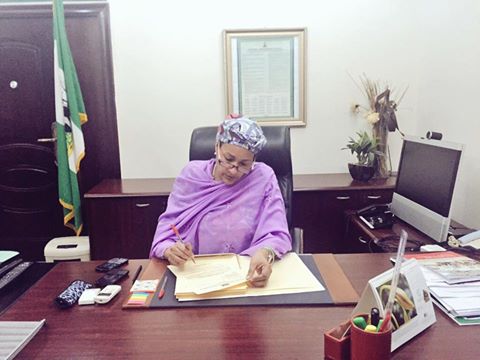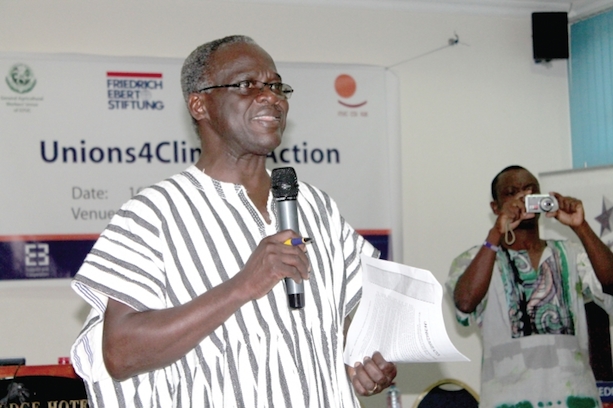
By Atâyi Babs
Nigeria, the largest economy in sub-Sahara Africa and a lower middle income developing country with a GDP per capita in current of $2,950 has finally submitted its Intended Nationally Determined Contributions (INDCs) .
Coming almost sixty days after the 1st october 2015 deadline set by the United Nations Framework Convention on Climate Change (UNFCCC), Nigeria’s INDC belies its determination to contribute to the success of the Paris climate summit in December 2015 and to grow its economy sustainably while reducing carbon pollution.
With food insecurity, poor access to energy and high unemployment, amongst others, constituting principal constraints on economic development and about 30% of the population living below the poverty line of US$1.25, coupled with the recent sharp decline in world oil prices putting enormous pressure on the federal government’s budget, which continues to depend significantly on export revenues, Nigeria’s INDC focuses on the delivery of direct development benefits and sustainable growth of the economy.
The climate action plan seeks to considerably address the impact of climate change in the country as the northern part remains vulnerable to drought while sea-level rise, flooding, ocean surge and fluctuating weather patterns are common occurrences in the south.
According to Tabi Joda of the Northwest zone of Climate and Sustainable Development Network of Nigeria (CSDevNet), “why is Nigeria submitting INDCs now? Why must we be late in all things?. Of what practical use is this submission when it cannot be captured in the already published synthesis report?”
Including Nigeria, 183 parties to the UNFCCC have formally submitted their INDCs.
All Parties to the UNFCCC are expected to submit climate action plans in the form of Intended Nationally Determined Contributions (INDCs) in advance of the Paris Climate Change Conference, which will take place in December 2015.
Parties are anticipated to agree on a global climate change agreement to take effect in 2020 at the Paris Climate Change.

By Atâyi Babs
Nigeria, the largest economy in sub-Sahara Africa and a lower middle income developing country with a GDP per capita in current of $2,950 has finally submitted its Intended Nationally Determined Contributions (INDCs) .
Coming almost sixty days after the 1st october 2015 deadline set by the United Nations Framework Convention on Climate Change (UNFCCC), Nigeria’s INDC belies its determination to contribute to the success of the Paris climate summit in December 2015 and to grow its economy sustainably while reducing carbon pollution.
With food insecurity, poor access to energy and high unemployment, amongst others, constituting principal constraints on economic development and about 30% of the population living below the poverty line of US$1.25, coupled with the recent sharp decline in world oil prices putting enormous pressure on the federal government’s budget, which continues to depend significantly on export revenues, Nigeria’s INDC focuses on the delivery of direct development benefits and sustainable growth of the economy.
The climate action plan seeks to considerably address the impact of climate change in the country as the northern part remains vulnerable to drought while sea-level rise, flooding, ocean surge and fluctuating weather patterns are common occurrences in the south.
According to Tabi Joda of the Northwest zone of Climate and Sustainable Development Network of Nigeria (CSDevNet), “why is Nigeria submitting INDCs now? Why must we be late in all things?. Of what practical use is this submission when it cannot be captured in the already published synthesis report?”
Including Nigeria, 183 parties to the UNFCCC have formally submitted their INDCs.
All Parties to the UNFCCC are expected to submit climate action plans in the form of Intended Nationally Determined Contributions (INDCs) in advance of the Paris Climate Change Conference, which will take place in December 2015.
Parties are anticipated to agree on a global climate change agreement to take effect in 2020 at the Paris Climate Change.











